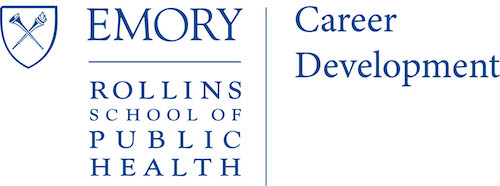2019 Public Health Ethics Forum, Abstracts due 3/15
Category : Student Opportunities
Ethical Dilemmas in Child and Adolescent Health
Friday, April 26, 2019
Centers for Disease Control and Prevention
Tom Harkin Global Communications Center
1600 Clifton Road, N.E. Atlanta, GA 30333 USA
Graduate Student Poster Contest
Call for Poster Abstracts
Submission deadline: March 15, 2019
Since 2015, the National Center for Bioethics in Research and Health Care at Tuskegee University and the Office of Minority Health and Health Equity at the Centers for Disease Control and Prevention (CDC) have co-hosted the annual Public Health Ethics Forum on CDC’s main campus. The initial forum commemorated the 100th anniversary of the creation of National Negro Health Week by Dr. Booker T. Washington – founding president of, then, Tuskegee Institute. This year, the forum will examine ethical issues that must address planning and implementing public health programs intending to improve health outcomes for children and adolescents – particularly among minority populations.
There are documented disparities in child and adolescent health, such as racial/ethnic disparities in the prevalence of pediatric obesity, cancer mortality rates, and injury deaths from motor vehicle crashes, firearms, and suffocation. Structural and other barriers contribute to these disparities, and perceived inaction to address them gives rise to public concerns of tolerance for largely preventable health inequities. The 2019 Public Health Ethics Forum will bring these and other structural ethical dilemmas to the forefront and will identify practical ways that public health practitioners can engage with other sectors to advance health equity for children and adolescents.
Students who are enrolled in graduate-level schools and programs with majors or concentrations in public health, public policy, education, criminal justice, social work, psychology and any major that provides a relevant frame for analyzing ethical issues for child and adolescent health are invited to submit an abstract describing research they are conducting and that can be presented in a poster format. The content of the abstract should focus on ethical issues that underlie the delivery of public health programs focused on children and adolescents who are members of minority populations. The abstract can focus on topics including, but not limited to, the following: contextual factors, SES, nutrition (e.g., food insecurity, access to healthy foods), factors in the social and physical environment that create barriers to healthy lifestyles and choices, cultural
influences, geography (rural vs. urban), generational change, social determinants of health (e.g., exposure to drugs, gangs, etc.), technology (e.g., the digital divide), access to health care, acceptance, surveillance, (mis)trust in providers and systems, fairness, as well as adverse childhood experiences. The abstract/poster content is not limited to initial or first time offerings and can include content previously presented at other local, state, or national conferences. Because of limited resources, CDC cannot provide the cost of travel and accommodations for participants who will be participating in the 2019 Public Health Ethics Forum. There will be no registration fees required for the summit activities. We are in the process of reserving a block of rooms at a hotel for forum participants.
Abstract Requirements
The abstract should be in MS Word, double-spaced, 12 point font Times New Roman. All abstracts must follow the structured format below:
* Background: Study objectives, hypothesis, or a description of the problem;
* Methodology: Study design, including a description of participants, procedures, measures, and appropriate statistical analyses;
* Results: Specific results in summary form; and
* Conclusions: Description of the main outcome of the study or the intended outcome with supporting data.
Abstracts are limited to a maximum of 275 words, including subheadings. Author(s) must provide 4 to 6 descriptive keywords. All abstracts will be peer reviewed and should be clearly written, well structured, error free, in an appropriate format, and formal scientific tone. Notification of the abstract review status will be sent by March 22, 2019. Ten (10) abstracts will be accepted for a poster presentation. Submission of an abstract is considered acknowledgement that if accepted, the author will register for and attend the 2019 Public Health Ethics Forum to present the poster. While faculty members and professionals may serve as advisors to the students as they are preparing their abstract/paper, faculty members and professionals may not serve as co-authors. We are asking that only students serve as authors and co-authors. CDC and Tuskegee University researchers and practitioners, as well as forum presenters and the top three poster abstract winners will be encouraged to submit a paper for publication in the Journal of Healthcare, Science and the Humanities.
Abstracts must be submitted as an email attachment to: keh2 [at] cdc [dot] gov by Friday, March 15, 2019 by 5:00 PM EST. Any questions related to the Call for Abstracts should be directed to Dr. Karen Bouye at keh2 [at] cdc [dot] gov or by phone at 770-488-8199.







Recent Comments